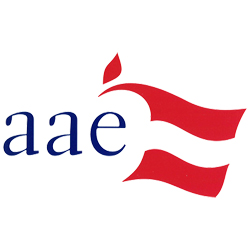When the government no longer assigns every child to a school, and multiple options are available, how do parents choose among them? It's an under-explored question. Researchers are only beginning to understand what parents' preferences really are in choice-heavy states like Florida, or what the school choice experience looks like in cities like New Orleans where charter schools predominate and vouchers are also available.
For that reason, it's worth learning more about how sophisticated parents — specifically, those who happen to be teachers — vet school options for their own kids. The Association of American Educators recently posed that question to its members, and the results are one of the more interesting nuggets in the annual member survey it recently released.
AAE is a professional service organization for teachers, and an alternative to unions. Its members tend to be more supportive of school choice, with 38 percent saying they personally benefit from it and 79 percent saying they back charter schools — stronger support than Education Next found among teachers in its most recent poll.
As more students gravitate to charter schools and other options outside traditional school districts, a similar shift is happening among teachers.
Look, for instance, at the growing number of Florida teachers employed by charter schools.
There's a desire among some education reformers to accelerate this shift by giving teachers the means to start their own charter schools or develop their own courses, which they can offer to students through course access programs.
A new member survey released last week by the Association of American Educators suggests there are educators who are seeking these options. The survey results show the group's members overwhelmingly support parental choice, from charters to course choice programs and scholarship accounts for special needs students.
Of the teachers surveyed, 97 percent said they support charter schools, the most popular option. Spokeswoman Alexandra Freeze said there were more than 1,000 survey participants among the group's 20,000 members from around the country.
The organization positions itself as an alternative to teachers unions, catering to reform-minded teachers by offering member perks and advocacy without engaging in collective bargaining. It's open to teachers from all types of employers, including those, like charters, that typically aren't unionized.
It has attracted members like Rhonda Lochiatto, who taught in district schools for 15 years before she moved to Reading Edge Academy, a Volusia County charter school where she teaches fourth grade.
Editor’s note: This is the ninth post in our school choice wish series. See the rest of the line-up here.
by Gary Beckner
School choice policies are making daily headlines across the country. While we often highlight the successes of individual schools and students, teachers are largely left out of the broader choice conversation. This holiday season, it’s my wish that educators are recognized as essential contributors to this important movement in American education.
The fact is every educational setting is a choice. District schools, private and parochial schools, public charter schools, and virtual schools – these are all choices in action. As we adapt to a dramatically changing education landscape, educators everywhere are embracing these new teaching environments, with tens of thousands of teachers educating millions of students nationwide.
This new renaissance in education is both shaking up our classrooms and fundamentally altering the face of the teaching profession. Dedicated, professional teachers should be given credit for their role in supporting and participating in choice settings. In sharing their talents in these new and exciting education environments, teachers are helping to create a brighter future for students who need personalized options.
Educators on the front lines know a one-size-fits-all system does little to address the unique needs of all our students. Students learn differently, just as teachers have their own strengths and weaknesses. In adapting to system of choice, professional educators are realizing these advances are not only meeting needs for students, but also providing professional opportunity.
While some try to promulgate a myth that teachers are not in favor of choice policies, thousands of teachers support this new direction and are teaching in choice schools every day. According to Association of American Educators (AAE) membership surveys, teachers are warming to these ideas.
Specifically, 69 percent of survey respondents support the Washington, D.C. Opportunity Scholarship Program (OSP) that awards need-based annual scholarships to eligible District children. The program has received notable bipartisan support in Congress and is considered one of the most prominent choice systems in the country. There is an understanding amongst educators that options for students are beneficial and that educators, in turn, can also reap rewards.
Take AAE Member Amy Rosno for instance. (more…)
 The Association of American Educators
The Association of American EducatorsThe Association of American Educators (AAE) is a non-union professional service organization for teachers. The AAE does not promote strikes or boycotts, does not engage in collective bargaining and does not engage in political activity unrelated to education. It does provide member benefits such as liability insurance, grants and resources such as job listings, lesson plans and other teaching materials.
 AAE doesn't have an official opinion on school vouchers, but it does survey members to see how they feel about education reform issues. Its most recent survey, released this week, reveals 59 percent of members support a Milwaukee-style voucher program for low-income students while 72 percent support Arizona’s Empowerment Scholarship Accounts (ESA) model. Regarding public school choice, 82 percent support open enrollment programs.
AAE doesn't have an official opinion on school vouchers, but it does survey members to see how they feel about education reform issues. Its most recent survey, released this week, reveals 59 percent of members support a Milwaukee-style voucher program for low-income students while 72 percent support Arizona’s Empowerment Scholarship Accounts (ESA) model. Regarding public school choice, 82 percent support open enrollment programs.
The survey only listed questions regarding school choice programs of limited scope and size, so it is possible members would be less supportive of more expansive voucher and scholarship programs. That said, the support among professional service organization teachers is roughly similar to that of the general public and several times more favorable than teachers in general.
Does the AAE attract teachers who are more likely to be open to school choice in the first place? Or does the AAE’s culture of professionalism encourage more open minds regarding school choice? These are matters worth exploring in the future.
Editor's note: This is the third of four guest posts on the future of teachers unions.
by Gary Beckner
We are at a critical crossroads on the path to education reform in America. Stakeholders from all walks of life and political stripes are beginning to understand that in order to compete in a global economy we must focus on choice and technology to prepare our students for the future.
Likewise, we must also recognize that in order to drive needed change in instruction we must also examine how the teacher workforce is represented. Just as a one-size-fits-all system is not working for students, a labor union model solely fixated on protecting the status quo is no longer serving the needs of all educators in a modern workforce.
Choices in education have opened up avenues for advancing the teaching profession like never before. Virtual schools, technology, and non-traditional charter schools allow teachers to set new schedules and adapt their vision for education to a school that meets their specific needs. These innovations have brought new experienced professionals into the profession and have allowed other talented educators the ability to stay on in different capacities.
According to a membership survey by the Association of American Educators, the non-union teacher organization that I lead, teachers support laws that advance choice and promote options. For example, 68 percent of member educators support an Indiana law that provides a tax credit to parents who send their children to a private or parochial school of their choice. Similarly, 74 percent of survey respondents support Arizona's Empowerment Scholarship Accounts, which allow parents of special-needs students to use state education dollars in a school that meets the student's needs.
Despite this groundswell of support from educators themselves, the nation’s largest teacher unions, the National Education Association and the American Federation of Teachers, continue to stand in the way of commonsense education reform for the sake of preserving their own monopoly. Not only is this harmful to America’s students, it degrades the professionalism of one of the most revered career choices. (more…)